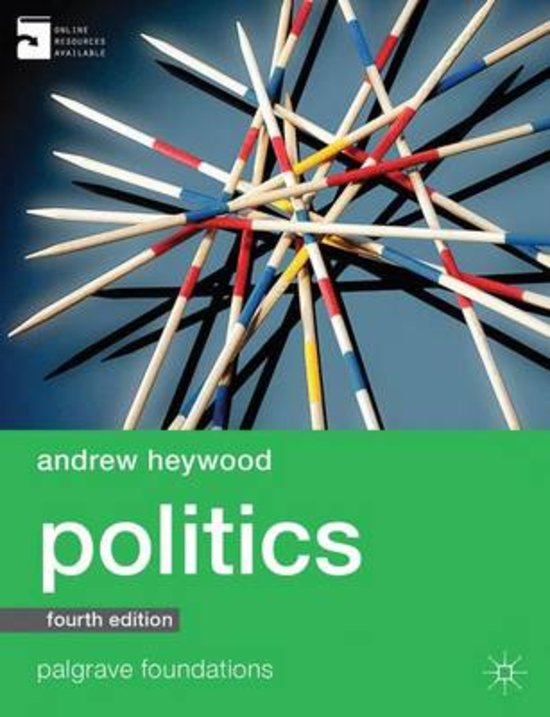Samenvatting
Summary Chapters 1, 2, 3, 4 - Politics by Andrew Heywood
- Vak
- Instelling
- Boek
This is a summary of chapters 1, 2, 3 and 4 of Andrew Heywood's book Politics. This is primarily used for the Introduction to Political Science course for the Political Science study. This is highly recommended to study for exams and in preparation for lectures.
[Meer zien]




